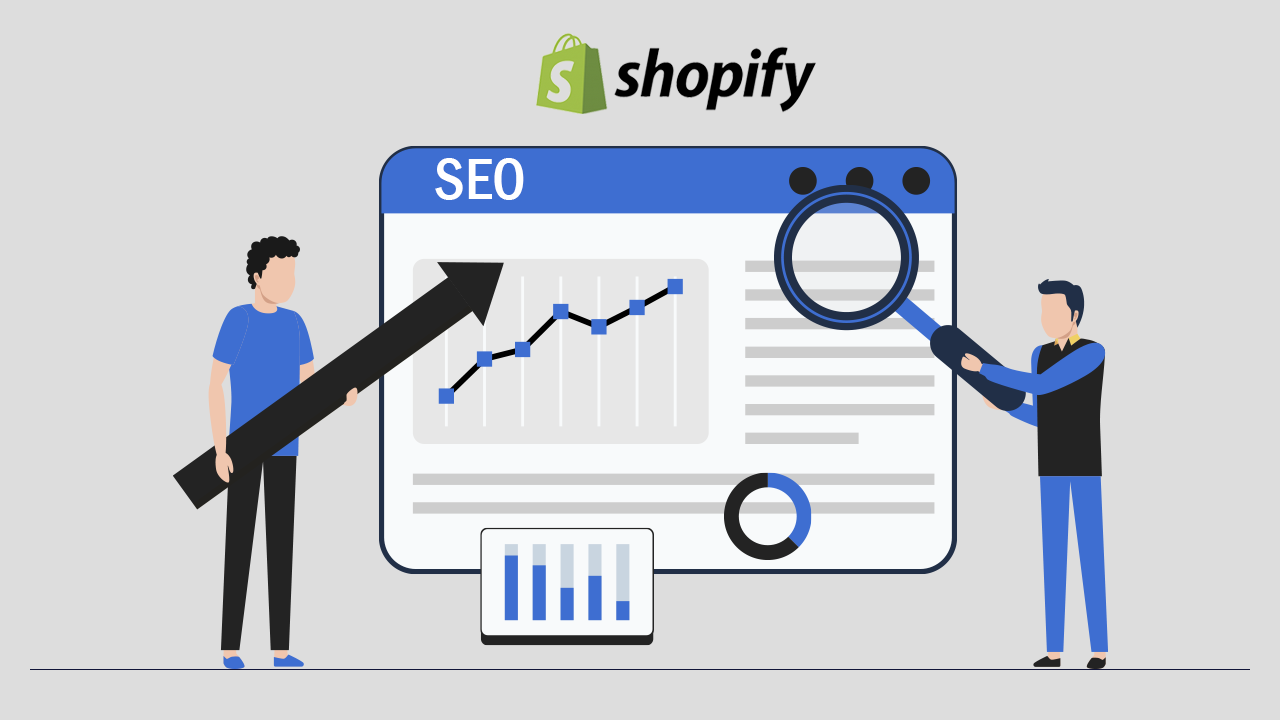Shopify SEO: Optimize Your Store for Search Engine Domination
Shopify provides a fantastic platform for building your online store, but attracting customers requires more than just a beautiful website. That’s where Shopify SEO comes in. It’s all about optimizing your store to rank higher in search engine results pages (SERPs) for relevant keywords, ultimately driving organic traffic and sales.
Why is Shopify SEO Important?
Imagine potential customers searching for products you sell. If your store isn’t ranking high in search results, they won’t find you. Here’s why Shopify SEO is crucial:
Increased Organic Traffic: Attract qualified leads who are actively searching for what you offer, boosting website visits.
Enhanced Brand Visibility: High search rankings portray your store as trustworthy and relevant, increasing brand awareness.
Improved Conversion Rates: Organic traffic often converts better than paid traffic, leading to more sales.
Cost-Effective Strategy:Unlike paid advertising, SEO delivers long-term benefits without ongoing costs.
Shopify SEO Advantages:
Shopify offers several built-in features that give you a head start with SEO:
Automatic Features:
- Canonical tags prevent duplicate content issues that can harm SEO.
- Sitemap.xml and robots.txt files are automatically generated for search engines.
- Themes often include basic title tag functionality.
- Canonical tags prevent duplicate content issues that can harm SEO.
- Sitemap.xml and robots.txt files are automatically generated for search engines.
- Themes often include basic title tag functionality.
App Integrations:
- Access a vast library of SEO apps in the Shopify App Store to help with keyword research, content optimization, and technical SEO audits.
- Access a vast library of SEO apps in the Shopify App Store to help with keyword research, content optimization, and technical SEO audits.







Key Strategies for Shopify SEO:
Keyword Research:
o Identify relevant keywords with high search volume and low competition to target on your product pages and content. Consider long-tail keywords for targeted searches.
o Identify relevant keywords with high search volume and low competition to target on your product pages and content. Consider long-tail keywords for targeted searches.
On-Page Optimization:
o Optimize product titles, descriptions, and meta tags with your target keywords.
o Include high-quality product images and videos with relevant alt text descriptions.
o Ensure your website structure is clear and user-friendly for both search engines and visitors.
o Optimize product titles, descriptions, and meta tags with your target keywords.
o Include high-quality product images and videos with relevant alt text descriptions.
o Ensure your website structure is clear and user-friendly for both search engines and visitors.
Content Marketing:
o Create informative and engaging blog posts, articles, or infographics related to your products and target audience.
o This fresh content establishes your brand as an authority, attracts backlinks, and improves search ranking.
o Create informative and engaging blog posts, articles, or infographics related to your products and target audience.
o This fresh content establishes your brand as an authority, attracts backlinks, and improves search ranking.
Technical SEO:
o Optimize website speed, mobile-friendliness, and overall technical health to improve user experience and search engine ranking. Consider using Shopify SEO apps for audits and optimization.
o Optimize website speed, mobile-friendliness, and overall technical health to improve user experience and search engine ranking. Consider using Shopify SEO apps for audits and optimization.
Link Building:
o Acquire high-quality backlinks from reputable websites in your niche. Backlinks act as votes of confidence for your store, influencing search engine algorithms.
o Acquire high-quality backlinks from reputable websites in your niche. Backlinks act as votes of confidence for your store, influencing search engine algorithms.
Structured Data Implementation:
o Utilize schema markup to provide search engines with richer information about your products, such as pricing, availability, and reviews. This can lead to richer search results with product information displayed directly in SERPs
o Utilize schema markup to provide search engines with richer information about your products, such as pricing, availability, and reviews. This can lead to richer search results with product information displayed directly in SERPs

